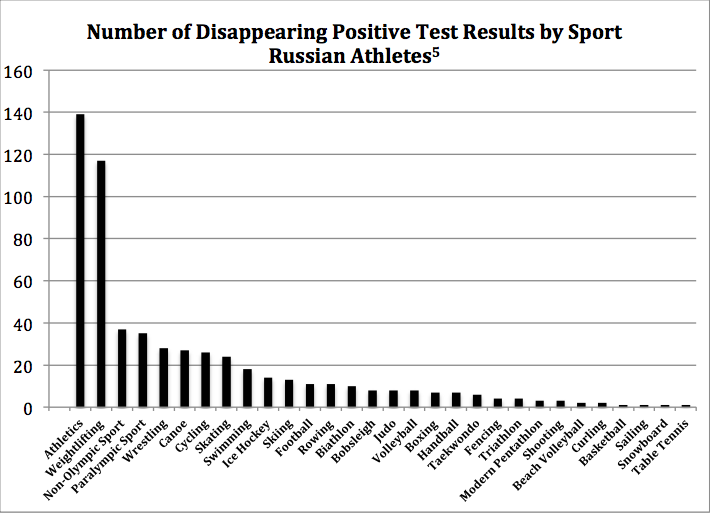-
Tips for becoming a good boxer - November 6, 2020
-
7 expert tips for making your hens night a memorable one - November 6, 2020
-
5 reasons to host your Christmas party on a cruise boat - November 6, 2020
-
What to do when you’re charged with a crime - November 6, 2020
-
Should you get one or multiple dogs? Here’s all you need to know - November 3, 2020
-
A Guide: How to Build Your Very Own Magic Mirror - February 14, 2019
-
Our Top Inspirational Baseball Stars - November 24, 2018
-
Five Tech Tools That Will Help You Turn Your Blog into a Business - November 24, 2018
-
How to Indulge on Vacation without Expanding Your Waist - November 9, 2018
-
5 Strategies for Businesses to Appeal to Today’s Increasingly Mobile-Crazed Customers - November 9, 2018
WADA says International Olympic Committee should consider declining all Russian athletes in Rio
The World Anti-Doping Agency endorsed barring Russian athletes from global competitions-including next month’s Rio Olympics-on Monday in response to a damning independent investigation that confirmed the operation of a widespread, state-sanctioned doping program during the 2014 Winter Olympics in Sochi, Russia, and beyond.
Advertisement
Over the weekend, some USA and Canadian Olympic officials had circulated an email calling for Russian Federation to be excluded from the Rio Games.
“This campaign is apparently based on information received by the WADA commission led by Canadian lawyer Richard McLaren, though this report should remain independent and completely confidential until the date of its release”, Zhukov said.
Following up on allegations first made by “60 Minutes” and the New York Times last spring, the report supported claims that officials at a Moscow anti-doping lab switched samples so that Russian athletes could avoid testing positive for banned substances. McLaren says the chain of command went as high as the Russian Federal secret service and the Ministry of Sport oversaw and controlled the swapping of tests.
McLaren described the deceptions to Reuters as “beautiful in it’s simplicity”.
Pound said prohibiting Russia from taking part in the Rio games wouldn’t hurt the competition, noting the absence of Russian athletes during the Eastern Bloc boycott of the 1984 Summer Olympic Games in Los Angeles.
There will no be mounting pressure for that to be extended even though Bach and some worldwide federations have said there has to be a way for athletes proved to be clean to compete in Rio.
Following publication of the McLaren report, the World Anti-Doping Agency’s executive board said it wants the International Olympic Committee to ban all Russian teams from the Rio Games.
Several national anti-doping organizations, including from Canada and the U.S., were awaiting McLaren’s findings to see if they would push for a total ban of the Russian team.
WADA’s executive committee said the IOC and the International Paralympics Committee should “decline entries, for Rio 2016, of all athletes submitted by the Russian Olympic Committee (ROC) and the Russian Paralympic Committee”.
The “disappearing positive methodology”, as McLaren calls it, is said to have begun in 2011, shortly after Russia’s disappointing performance at the Vancouver Olympics. “I didn’t need to get into that”.
When asked how certain he was of his findings, McLaren said he had “unwavering confidence” in all of his results. The IAAF Doping Review Board found Ms. Klishina, who trains at a Florida sports academy, “meets the exceptional eligibility criteria” because she proved she was not involved in the scandal, and was subjected to drug tests outside of Russian Federation. In a move that accentuates how complicated the matter can become, the International Olympic Committee has said there is no contingency for a large group of Russians competing under a neutral flag that Russians should compete for the Russian team if they’re allowed in.
Advertisement
Coaches and trainers say they’ve seen first-hand the negative impact doping’s had on athletes who try to win without cheating.




























